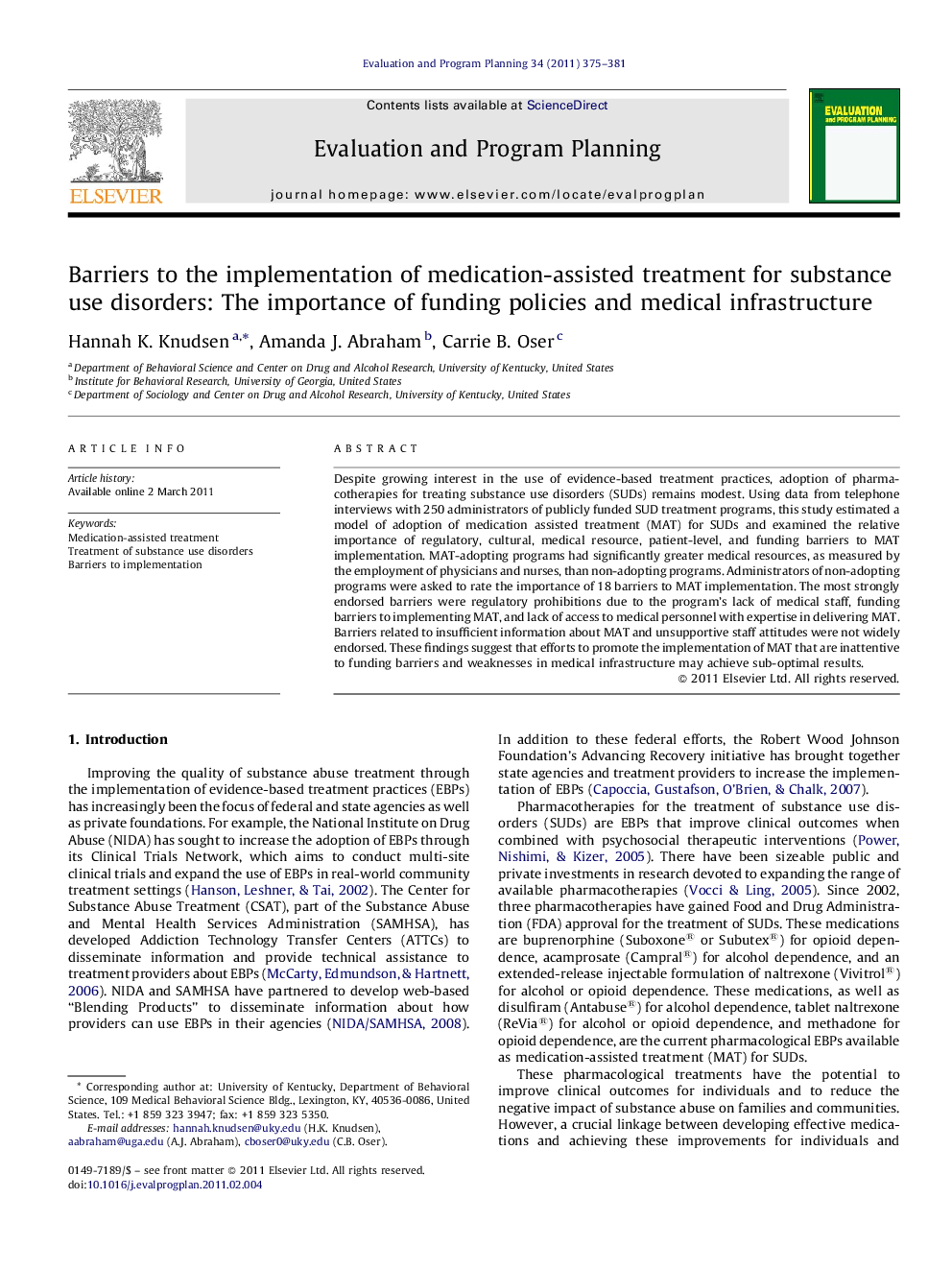| Article ID | Journal | Published Year | Pages | File Type |
|---|---|---|---|---|
| 322357 | Evaluation and Program Planning | 2011 | 7 Pages |
Despite growing interest in the use of evidence-based treatment practices, adoption of pharmacotherapies for treating substance use disorders (SUDs) remains modest. Using data from telephone interviews with 250 administrators of publicly funded SUD treatment programs, this study estimated a model of adoption of medication assisted treatment (MAT) for SUDs and examined the relative importance of regulatory, cultural, medical resource, patient-level, and funding barriers to MAT implementation. MAT-adopting programs had significantly greater medical resources, as measured by the employment of physicians and nurses, than non-adopting programs. Administrators of non-adopting programs were asked to rate the importance of 18 barriers to MAT implementation. The most strongly endorsed barriers were regulatory prohibitions due to the program's lack of medical staff, funding barriers to implementing MAT, and lack of access to medical personnel with expertise in delivering MAT. Barriers related to insufficient information about MAT and unsupportive staff attitudes were not widely endorsed. These findings suggest that efforts to promote the implementation of MAT that are inattentive to funding barriers and weaknesses in medical infrastructure may achieve sub-optimal results.
